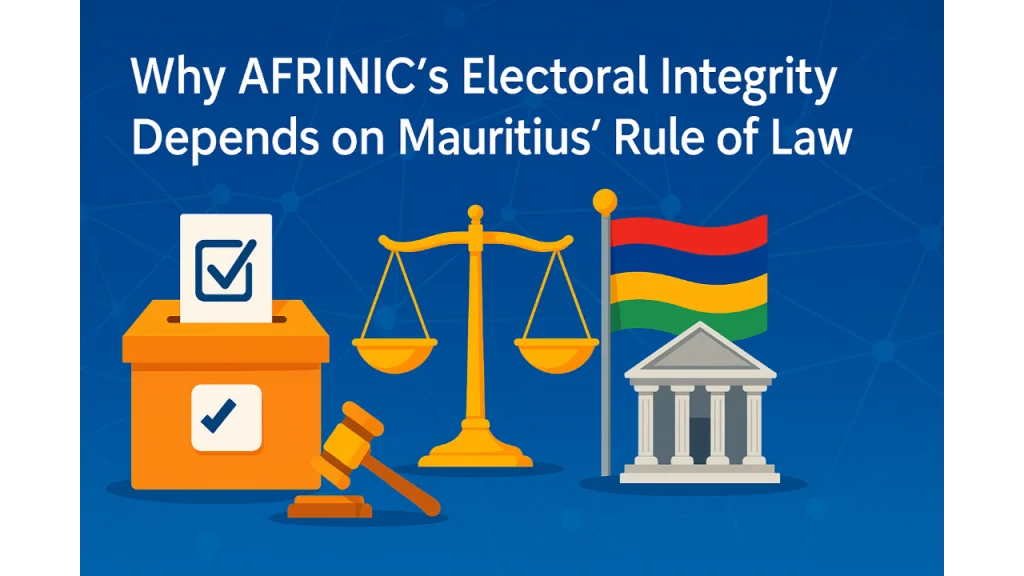- Stakeholders question validity of AFRINIC’s September board vote.
- Legal experts warn poll failed Mauritius Companies Act safeguards.
Mauritius courts at the centre of AFRINIC’s election turmoil
The African Network Information Centre (AFRINIC) released results of its September 2025 election on 15 September, naming eight directors. Electronic ballots were held from 10–12 September under the oversight of AFRINIC’s Election Committee and a court-appointed Receiver.
Yet doubts surfaced within hours. The Supreme Court had already struck down June’s election over a proxy dispute, and observers again reported irregularities around voting rights and ballot verification. Coverage in CircleID and ICT News Africa highlights systemic governance breakdowns.
Also read: AFRINIC claims ‘website not hacked’ amid election-period concerns
Also read: AFRINIC election: Voter fraud uncovered as ECom member threatens to resign
Elections without the rule of law
Observers argue that accepting AFRINIC’s September vote would set a precedent for unlawful interference. Instead of being run by its members, the election was controlled by a court-appointed Receiver—an arrangement many see as stripping sovereignty from the community.
This dispute cuts to the very core of AFRINIC’s legitimacy. As the body managing Africa’s IP address resources, it is expected to act with neutrality and transparency. Without a process grounded in the Mauritius Companies Act, AFRINIC’s own bylaws, and global norms like ICP-2, confidence in the registry’s ability to perform its duties is unlikely to recover.
Also read: How can African governments restore trust in AFRINIC?
Credibility crisis demands structural reset
The organisation’s history of annulled votes, contested leadership, and judicial intervention highlights a deeper governance failure. Analysts argue that unless AFRINIC resets its structures under the rule of law, its stewardship of Africa’s IP address space will remain in doubt and confidence from members and partners will continue to erode.

